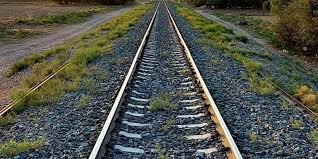A major railway expansion project in Meghalaya has sparked strong opposition from the Federation of Khasi Jaintia Garo People (FKJGP), which has demanded an immediate halt to the proposed Chaparmukh-Jowai railway line until effective measures are implemented to regulate immigration into the state.
The 180-km railway project, proposed by the Northeast Frontier Railway (NFR), aims to connect Chaparmukh Junction in Assam with Jowai in Meghalaya, significantly improving connectivity between the two states. However, the FKJGP has urged the Jaintia Hills Autonomous District Council (JHADC) to deny a No Objection Certificate (NOC) for the project, citing fears of large-scale migration into Meghalaya.
Concerns Over Immigration and Infrastructure Expansion
The opposition from FKJGP stems from concerns that unrestricted immigration could disrupt the demographic balance and affect indigenous communities in Meghalaya. The group has maintained that railway connectivity, while beneficial for economic development, could lead to an influx of outsiders, threatening local employment and cultural identity.
According to FKJGP leaders, infrastructural projects such as railways should not move forward unless there are effective mechanisms in place to regulate migration. They have called on the state government to implement stringent Inner Line Permit (ILP) regulations and other legal measures to prevent uncontrolled settlement by non-indigenous people.
Railway Survey and Opposition Grows
The controversy escalated after reports emerged that the Northeast Frontier Railway (NFR) had begun preliminary surveys in several locations, including Bhoksong, Rajagaon, Baithalangso, Jengkha, and Kherani-Umrangso, to assess the feasibility of extending the rail network to Jowai.
FKJGP members and other civil society groups have expressed serious concerns, arguing that the state’s unique tribal population and its Autonomous District Council (ADC) framework must be protected before any large-scale infrastructure project is approved.
The FKJGP has also called for greater transparency from the Meghalaya government, urging officials to disclose the full details of the proposed project and its potential socio-economic impact.
Economic Development vs. Indigenous Rights
Proponents of the Chaparmukh-Jowai railway line argue that improved railway connectivity could be a game-changer for Meghalaya’s economy, especially in trade, tourism, and industrial development.
Currently, Meghalaya relies heavily on road transport, which is often unreliable due to poor road conditions and frequent landslides, particularly during the monsoon season. A railway link would enhance economic opportunities, reduce transportation costs, and provide better access to markets for local businesses.
However, the FKJGP and other groups remain steadfast in their opposition, emphasizing that the preservation of indigenous identity should take priority over economic gains. They argue that without proper immigration controls, rapid infrastructure development could lead to loss of land, cultural erosion, and social conflicts.
Political and Government Response
The Meghalaya government has not yet issued a final decision on the railway project. However, state officials have acknowledged the concerns raised by local groups and have assured that any infrastructure expansion will be carried out only after consultations with stakeholders.
The Jaintia Hills Autonomous District Council (JHADC), which holds the authority to grant or deny the NOC, is under pressure from both sides. While some members of the council support the railway as a means of economic progress, others share FKJGP’s concerns about immigration and cultural preservation.
At the same time, the Northeast Frontier Railway (NFR) has emphasized that railway projects are designed to benefit local populations by boosting connectivity and employment. Officials have suggested that measures such as strict verification of railway passengers and government-mandated immigration policies could address concerns about uncontrolled migration.
The debate over the Chaparmukh-Jowai railway project highlights the tension between development and cultural preservation in Meghalaya. While improved railway connectivity could offer major economic benefits, concerns over uncontrolled immigration remain a key issue for indigenous groups.
As discussions continue, it remains to be seen whether the Meghalaya government, JHADC, and NFR can find a solution that balances economic growth with the protection of tribal rights. Until then, the FKJGP and other local organizations are determined to oppose any railway expansion unless strong immigration safeguards are put in place.




